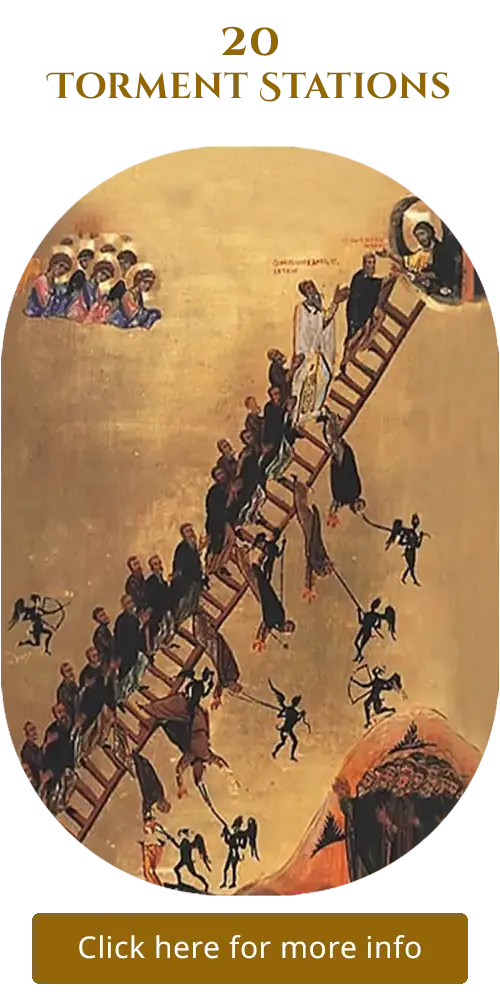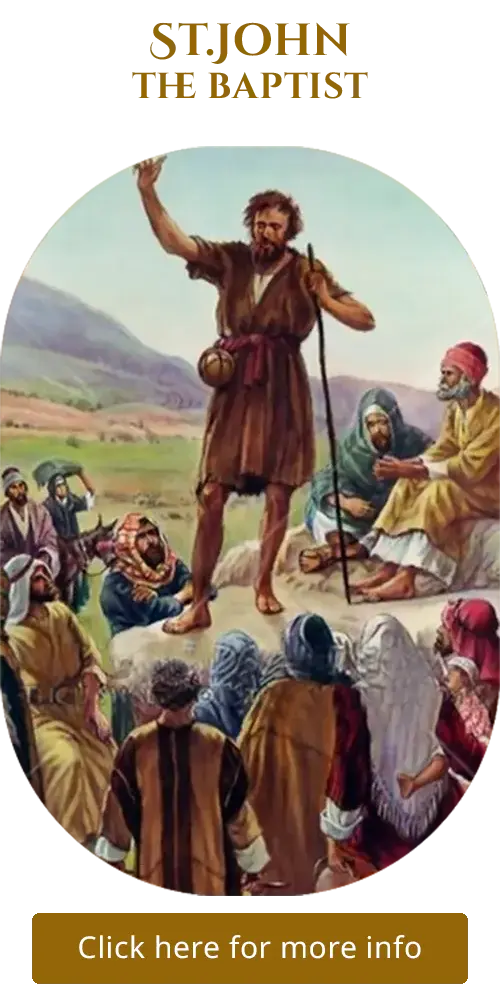St. Barthlomew
Outside Paintings - North Wall
King David: The Prophet, Psalmist, and Ancestor of Christ



Reference: 1 Samuel 16, 1 Kings 2, 1 Chronicles 2–29, Book of Psalms
Early Life and Anointing
David, born around 1040 BCE in Bethlehem, was the youngest of eight sons of Jesse, from the tribe of Judah and a descendant of Ruth the Moabite. A shepherd boy, he developed skills in music, poetry, and combat, protecting his flock from lions and bears. During a time of spiritual and political turmoil in Israel, the prophet Samuel, guided by God, sought a new king to replace Saul, who had disobeyed divine commands. Samuel anointed David in a private ceremony, declaring him God’s chosen king, though Saul still reigned. The Spirit of the Lord came upon David, while Saul began to suffer from emotional and spiritual distress, described as an “evil spirit”.
David in Saul’s Court
David entered Saul’s court as a musician, playing the harp to soothe the king’s troubled mind. His talent and charisma won Saul’s favor, and he became an armor-bearer. However, David’s rise to prominence began with his iconic battle against Goliath, a Philistine giant over nine feet tall who taunted Israel for 40 days. Armed only with a sling and five stones, David, driven by faith in God, killed Goliath with a single shot to the forehead, leading to an Israelite victory. This act made David a national hero but sparked Saul’s jealousy, as the people sang, “Saul has slain his thousands, and David his ten thousands” .
Conflict with Saul and Friendship with Jonathan
David’s success fueled Saul’s paranoia, leading to multiple attempts on David’s life, including spear-throwing incidents. Despite this, David formed a deep bond with Saul’s son Jonathan, described as a covenant of love where “Jonathan loved him as himself”. David married Saul’s daughter Michal, further tying him to the royal family, but Saul’s hostility forced David to flee.
David lived as a fugitive, gathering a band of outlaws and seeking refuge in Philistine territory, Moab, and the Judean wilderness. He spared Saul’s life twice, demonstrating his refusal to harm God’s anointed king. Meanwhile, Saul and Jonathan died in battle against the Philistines at Mount Gilboa, with Saul falling on his own sword . David mourned their deaths, composing a lament in 2 Samuel 1.
Kingship and Conquests
After Saul’s death, David was anointed king of Judah in Hebron. Following a brief civil war with Saul’s son Ishbaal, David unified Israel and Judah, becoming king of the United Kingdom around 1000 BCE. He captured Jerusalem, making it Israel’s political and religious capital, and brought the Ark of the Covenant there. David’s military campaigns subdued the Philistines, Moabites, Ammonites, and Edomites, establishing a small empire. However, scholars debate the extent of his kingdom, with some arguing it was a modest tribal confederation rather than a grand monarchy, as archaeological evidence like the Tel Dan Stele confirms the “House of David” but lacks detail on his reign’s scope.
God promised David an eternal dynasty through the prophet Nathan, a covenant fulfilled in Jewish tradition through the Messiah and in Christianity through Jesus, the “Son of David.” David was forbidden from building a temple due to his bloodshed, a task left to his son Solomon.
Sin with Bathsheba
David’s reign was not without moral failings. While his army was at war, David saw Bathsheba bathing and, despite knowing she was married to Uriah the Hittite, slept with her, leading to her pregnancy. To cover his sin, David recalled Uriah from battle, hoping he would sleep with Bathsheba, but Uriah’s loyalty to his troops prevented this. David then orchestrated Uriah’s death by placing him on the front lines, after which he married Bathsheba. The prophet Nathan confronted David with a parable, leading to his repentance. However, the child born of the affair died, and David’s house faced ongoing turmoil, including the deaths of four sons, fulfilling Nathan’s prophecy. Bathsheba later bore Solomon, David’s successor.
Later Years and Legacy
David’s later life was marked by family strife, including his son Absalom’s rebellion and death. As David grew frail, Bathsheba secured Solomon’s succession. David died around 970 BCE after a 40-year reign, leaving a complex legacy. He is celebrated as a “man after God’s own heart” for his faith, repentance, and devotion. David’s establishment of Jerusalem as Israel’s center and his covenant with God cemented his enduring significance in Judaism, Christianity, and Islam, where he is revered for his piety and Psalms.






